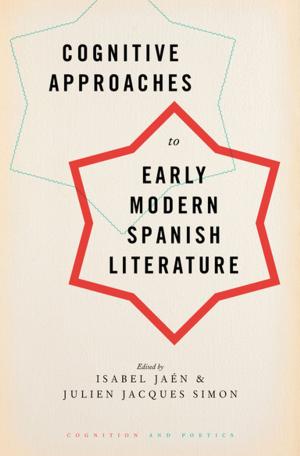Exemplarist Moral Theory
Nonfiction, Religion & Spirituality, Philosophy, Epistemology, Reference & Language, Language Arts, Linguistics, Ethics & Moral Philosophy| Author: | Linda Zagzebski | ISBN: | 9780190659783 |
| Publisher: | Oxford University Press | Publication: | February 21, 2017 |
| Imprint: | Oxford University Press | Language: | English |
| Author: | Linda Zagzebski |
| ISBN: | 9780190659783 |
| Publisher: | Oxford University Press |
| Publication: | February 21, 2017 |
| Imprint: | Oxford University Press |
| Language: | English |
In this book Linda Zagzebski presents an original moral theory based on direct reference to exemplars of goodness, modeled on the Putnam-Kripke theory which revolutionized semantics in the seventies. In Exemplarist Moral Theory, exemplars are identified through the emotion of admiration, which Zagzebski argues is both a motivating emotion and an emotion whose cognitive content permits the mapping of the moral domain around the features of exemplars. Using examples of heroes, saints, and sages, Zagzebski shows how narratives of exemplars and empirical work on the most admirable persons can be incorporated into the theory for both the theoretical purpose of generating a comprehensive theory, and the practical purpose of moral education and self-improvement. All basic moral terms, including "good person," "virtue," "good life," "right act," and "wrong act" are defined by the motives, ends, acts, or judgments of exemplars, or persons like that. The theory also generates an account of moral learning through emulation of exemplars, and Zagzebski defends a principle of the division of moral linguistic labor, which gives certain groups of people in a linguistic community special functions in identifying the extension or moral terms, spreading the stereotype associated with the term through the community, or providing the reasoning supporting judgments using those terms. The theory is therefore semantically externalist in that the meaning of moral terms is determined by features of the world outside the mind of the user, including features of exemplars and features of the social linguistic network linking users of the terms to exemplars. The book ends with suggestions about versions of the theory that are forms of moral realism, including a version that supports the existence of necessary a posteriori truths in ethics.
In this book Linda Zagzebski presents an original moral theory based on direct reference to exemplars of goodness, modeled on the Putnam-Kripke theory which revolutionized semantics in the seventies. In Exemplarist Moral Theory, exemplars are identified through the emotion of admiration, which Zagzebski argues is both a motivating emotion and an emotion whose cognitive content permits the mapping of the moral domain around the features of exemplars. Using examples of heroes, saints, and sages, Zagzebski shows how narratives of exemplars and empirical work on the most admirable persons can be incorporated into the theory for both the theoretical purpose of generating a comprehensive theory, and the practical purpose of moral education and self-improvement. All basic moral terms, including "good person," "virtue," "good life," "right act," and "wrong act" are defined by the motives, ends, acts, or judgments of exemplars, or persons like that. The theory also generates an account of moral learning through emulation of exemplars, and Zagzebski defends a principle of the division of moral linguistic labor, which gives certain groups of people in a linguistic community special functions in identifying the extension or moral terms, spreading the stereotype associated with the term through the community, or providing the reasoning supporting judgments using those terms. The theory is therefore semantically externalist in that the meaning of moral terms is determined by features of the world outside the mind of the user, including features of exemplars and features of the social linguistic network linking users of the terms to exemplars. The book ends with suggestions about versions of the theory that are forms of moral realism, including a version that supports the existence of necessary a posteriori truths in ethics.















